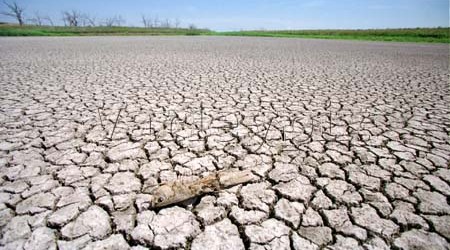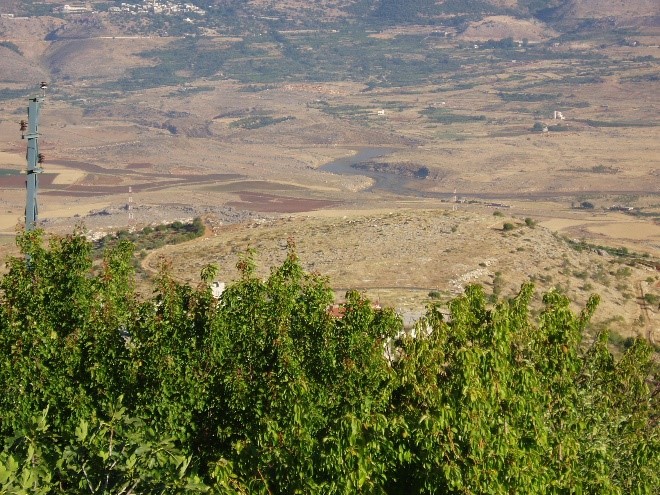
By Christina Boyes
Across the Muslim world, water issues vary in their scope and severity. Writing from Oak Ridge National Laboratory in the United States, Syeda Mariya Absar reminds us that “Muslim religious philosophy and the importance of water is … a potential linchpin that could influence future policies and begin to answer some of the water demand challenges these nations face in the 21st century.”
Flooding in countries such as Bangladesh and Indonesia can, and often does, contaminate the water table. Rising sea water threatens to submerge entire countries. Some scholars would argue however, that one of the most pertinent concerns to human survival – on parallel with climate change – is freshwater scarcity.
Despite its importance to survival, the perception of water as a human right, is an idea that was the subject of international debate as recently as 2010. In many parts of the world, freshwater is taken for granted. Hard rains, monsoons, and floods make it difficult to imagine water scarcity, as a global concern – or a question of political stability.

A pump on Lebanon’s Wazzani Spring, a tributary to the Jordan River. That pump project brought Lebanon and Israel to the brink of war in 2001
The freshwater challenges faced across the Muslim world vary greatly, from the rising sea levels that encroach on freshwater availability in Southeast Asia to water abundant states including Albania and Turkey, where water pollution is the primary concern. Nowhere in the Muslim world, is water a more pressing issue than in the conflict-riddled Middle East and North Africa, however. In this region, overtaxed underground aquifers and low yearly rainfall, create dry conditions unlike any other inhabited region on the globe.
In his quiet office, up two flights of stairs in an aging building on the Colorado School of Mines (USA) campus in scenic Golden, CO, Professor Hussein A. Amery sits working on his next book – Arab Water Security. Professor Amery is a political geographer with an in-depth knowledge of water and security. Lebanese by birth, he still sports a tan from his last trip to this country. Author of several books and articles, including Water in the Middle East: A geography of peace (with Aaron T. Wolf); for a successful academic, he is also a humble man.
Prof. Amery is one of a handful of academics, who are focusing on the study of political security and stability, as related to water in the Middle East. He is driven by concerns such as – in his words – “Water scarcity. Desalination is a superb technology, that provides fresh water to people in need, in dry regions, however, it remains an expensive solution. It is far beyond the reach of poor countries like Yemen, Bangladesh, and others. There’s not a cheaper solution on the horizon. Therefore, water security is THE upcoming issue. What would happen if someone were to blow up a mega desalination plant that provides freshwater to a large urban center?”
Amery is right to be concerned – according to Sidem, a company that produces desalination equipment, more than 230 million people depend on desalination for their daily fresh water provisions. The technology provides fresh water for a large portion of the Muslim World, particularly the Middle East. Yet, much of the region is entrenched in violent conflict.

The low-water level in Litani River, Bekaa Valley of Lebanon. Precipitation in the Fertile Crescent countries were very low this past winter and the people are feeling the brunt of that.
Desalination technology has allowed increased development in the United Arab Emirates and other Gulf Corporation Council Countries. The improved standard of living that oil wealth creates, comes with a price – population growth. Imported labor and internal migration to cities, places increased stress on already scant water resources – although the Middle East is home to 5% of the world’s population, it only has access to 1% of the world’s freshwater resources.
Desalination is an expensive endeavor. According to Bloomberg, most of the cost of a desalination plant is tied to the energy the plants consumes – an average of 15,000 kilowatt hours for every million gallons of desalinated water produced. Constructing a plant can cost as little as $21 million dollars, but often runs in the hundreds of millions. A plant recently constructed in California, cost nearly $1 billion USD. Water delivery costs must also be incorporated into calculations, as well as maintenance, upkeep, and the cost of the desalination process itself.
While desalination dependency poses a potential threat, this technology also allows for generosity. Prof. Amery reminds us that “The ruler of Dubai, His Eminence Sheikh Mohammad bin Rashid al-Maktoum, started a water aid initiative, to coincide with the month of Ramadan. The name he chose for it is Suqia. Suqia is the Arabic/Islamic name for quenching one’s thirst. Outside of the United Arab Emirates, the program is known as UAE Water Aid.”
Following the Prophet’s teachings of charity as providing water to the poor, Dubai’s wealth – aided by the existence of desalination plants – is now helping to construct wells in poorer regions that will one day provide water to millions of people.
One challenge facing academics in the Muslim World, as pointed out by Prof. Amery, is finding funding for applied research in water. Beacons of hope exist, however. According to Prof. Amery, “A wonderful foundation that works with all scientists – Arab Science and Technology Foundation (ASTF.net), based in Sharjah, UAE and headed by Dr. Abdalla Alnajjar, really does good work in this arena. It funds Arab scientists who have creative and innovative ideas; this obviously includes funding for projects that provide clean, fresh water to various communities. Funding for applied research in the Middle East and North Africa is very, very limited, so ASTF’s work is very important to the economic and social development of that region.”
The Red-Dead Canal project is an example of desalination as a force for peace in the region. Much of the water on the Jordan River is used by upstream riparians. When the watercourse reaches the Dead Sea, very little water remains. The result is, that the Dead Sea has steadily decreased in size over the past four decades.
Regarding this project, Prof. Amery stated that, “The World Bank and other groups collaborated to develop plans to move water from the
Red Sea to the Dead Sea. As the water descends, it generates electricity that is used to desalinate water, providing fresh water that is in very short supply in that region. In addition to the obvious hydrological benefits, this science and technology project will ensure that the Dead Sea survives as a World Heritage Site.
The Dead Sea itself has religious value to the Christian community in particular – pilgrims to the Jordan and the Dead Sea can continue their worship with this body of water intact. Politically it is an example – a model project – for how Jews [Israelis] and Muslims [Jordanians] can work together to benefit their own communities, and humanity at large.”
In a future where climate change is expected to create an even more arid Middle East, desalination represents a vulnerable, expensive, and yet effective solution to the increasing water needs in the region. A potential target for terrorists, or a tool for peacebuilding, until something better emerges, desalination is the answer in the Middle East – and not just to the problems created by water scarcity.
For more information on water issues in the Muslim World, UAE Suqia, or water in the Middle East, please see these resources:
Christina Boyes is a professional writer who splits time living in Mexico and the United States. Her primary interests include seismology, geophysics, green technologies, climate change, water, and the intersection of these areas with geopolitics.
*Image credits go to Professor Hussein A. Amery. The interviewee can be reached at hamery@mines.edu.
You must be logged in to post a comment.